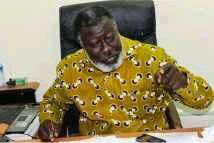Should We Be Afraid of Death?
In his influential paper of 1970, tersely
entitled Death, the great philosopher Thomas
Nagel asks the question: if death is the
permanent end of our existence, is it an evil?
Either it is an evil because it deprives us of
life, or it is a mere blank because there is no
subject left to experience the loss. Thus, if
death is an evil, this is not in virtue of any
positive attributes that it has, but in virtue of
what it deprives us from, namely, life. For
Nagel, the bare experience of life is
intrinsically valuable, regardless of the balance
of its good and bad elements.
The longer one is alive, the more one
'accumulates' life. In contrast, death cannot be
accumulated—it is not, as Nagel puts it, 'an
evil of which Shakespeare has so far received a
larger portion than Proust'. Most people would
not consider the temporary suspension of life
as an evil, nor would they regard the long
period of time before they were born as an
evil. Therefore, if death is an evil, this is not
because it involves a period of non-existence,
but because it deprives us of life.
Nagel raises three objections to this view, but
only so as to counter them later on. First, it is
doubtful whether anything can be an evil
unless it actually causes displeasure. Second,
in the case of death, there does not appear to
be a subject to suffer an evil. As long as a
person exists, he has not yet died, and once he
has died, he no longer exists. Thus, there
seems to be no time at which the evil of death
might occur. Third, if most people would not
regard the long period before they were born
as an evil, then why should they regard the
period after they are dead any differently?
Nagel counters these three objections by
arguing that the good or evil that befalls a
person depends on his history and possibilities
rather than on his momentary state, and thus
that he can suffer an evil even if he is not here
to experience it. For example, if an intelligent
person receives a head injury that reduces his
mental state to that of a contented infant, this
should be considered a serious ill even if the
person himself (in his current state) is unable
to comprehend it. In other words, if the three
objections are invalid, it is essentially because
they ignore the direction of time. Even though
a person cannot survive his death, he can still
suffer an evil; and even though he does not
exist during the time before his birth or
during the time after his death, the time after
his death is time of which he has been
deprived, time in which he could have
continued to enjoy the good of living.
The question remains as to whether the non-
realisation of further life is an absolute evil, or
whether this depends on what can naturally be
hoped for: the death of Keats at 24 is
commonly regarded as tragic, but that of
Tolstoy at 82 is not. 'The trouble,' says Nagel,
'is that life familiarises us with the goods of
which death deprives us … Death, no matter
how inevitable, is an abrupt cancellation of
indefinitely extensive goods.'
Given the sheer pain of this conclusion, it is
hardly surprising that philosophers and
theologians throughout the ages have sought,
more or less unsuccessfully, to undermine it.
Death not only deprives us of life, but also
compels us to spend the life that it deprives us
from in the mostly unconscious fear of this
deprivation. And, as I argue in The Art of
Failure , it is precisely this unconscious fear
that holds us back from exercising choice and
freedom. In short, death is an evil not only
because it deprives us of life, but also because
it mars whatever little life we do have. While
we may be able to somewhat postpone our
death, there is absolutely nothing that we can
do to prevent it altogether. In the words of the
ancient philosopher Epicurus, 'It is possible to
provide security against other ills, but as far as
death is concerned, we men live in a city
without walls.' All that we can do is to come to
terms with death in the hope of preventing it
from preventing us from making the most of
our life.
Neel Burton is author of The Meaning of
Madness , The Art of Failure: The Anti Self-
Help Guide , Hide and Seek: The Psychology
of Self-Deception , and many other books.




